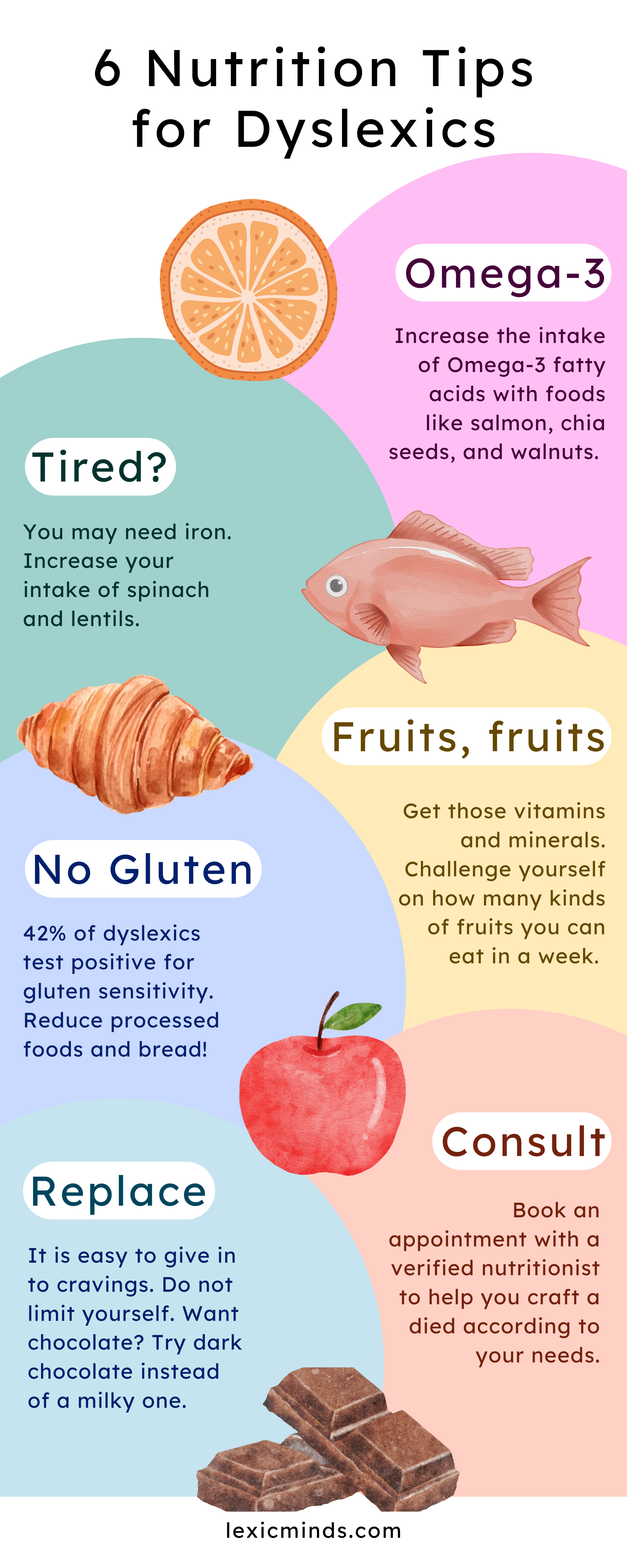Are Dyslexia and nutrition related at all?
Dyslexia, for those unfamiliar with it, is like your brain is playing a perpetual game where it mixes up letters and words in ways that can make reading and writing feel like climbing Mount Everest without oxygen. In recent years, one area that has gained popularity is the potential relationship between nutrition and Dyslexia.
Our bodies are incredibly complex machines and need the right fuel to fire on all cylinders. Researchers have identified several essential nutrients and dietary patterns that may play a protagonist role in the development and management of Dyslexia. Certain nutrients, like those fancy omega-3 fatty acids and a whole alphabet soup of vitamins and minerals, are like high-octane brain food.
And when our diets lack these crucial ingredients, our gray matter might start misfiring.
But wait. There is more. Studies have shown specific dietary interventions may improve the symptoms and outcomes associated with Dyslexia.
So, exploring the relationship between nutrition and Dyslexia can help you make better decisions at the supermarket for your dyslexic child (and the whole house, actually).Â

Recent Studies Around Dyslexia and Nutrition
First things first. It is important to look into some pretty mind-blowing studies. The findings will make your taste buds tingle.Â
A study published in the Journal of Medicinal Food compared the dietary patterns of nutrient intake of 20 children with Dyslexia before and after adding a supplement containing high-DHA fish oil and evening primrose oil.Â
And guess what? 13 of the 20 children with Dyslexia had significantly improved their reading speed and motor-perceptual velocity.Â
Another study published by Richardson and Puri shared similar results.Â
They investigated the impact of omega-3 supplementation on the ADHD symptoms of children with Dyslexia. The results? Those little fish oil capsules packed a punch. The study involved 29 children ages 8-11 with Dyslexia and ADHD symptoms. One percentage received supplements and the other half a placebo.
The results showed that the children who received the active fatty acids supplement improved literary skills (see graph below), compared to the placebo group.Â
And just when you thought it couldn’t get any more intriguing, another study done by the ââNunnykirk School in Northumberland added insights on gluten sensitivity.Â
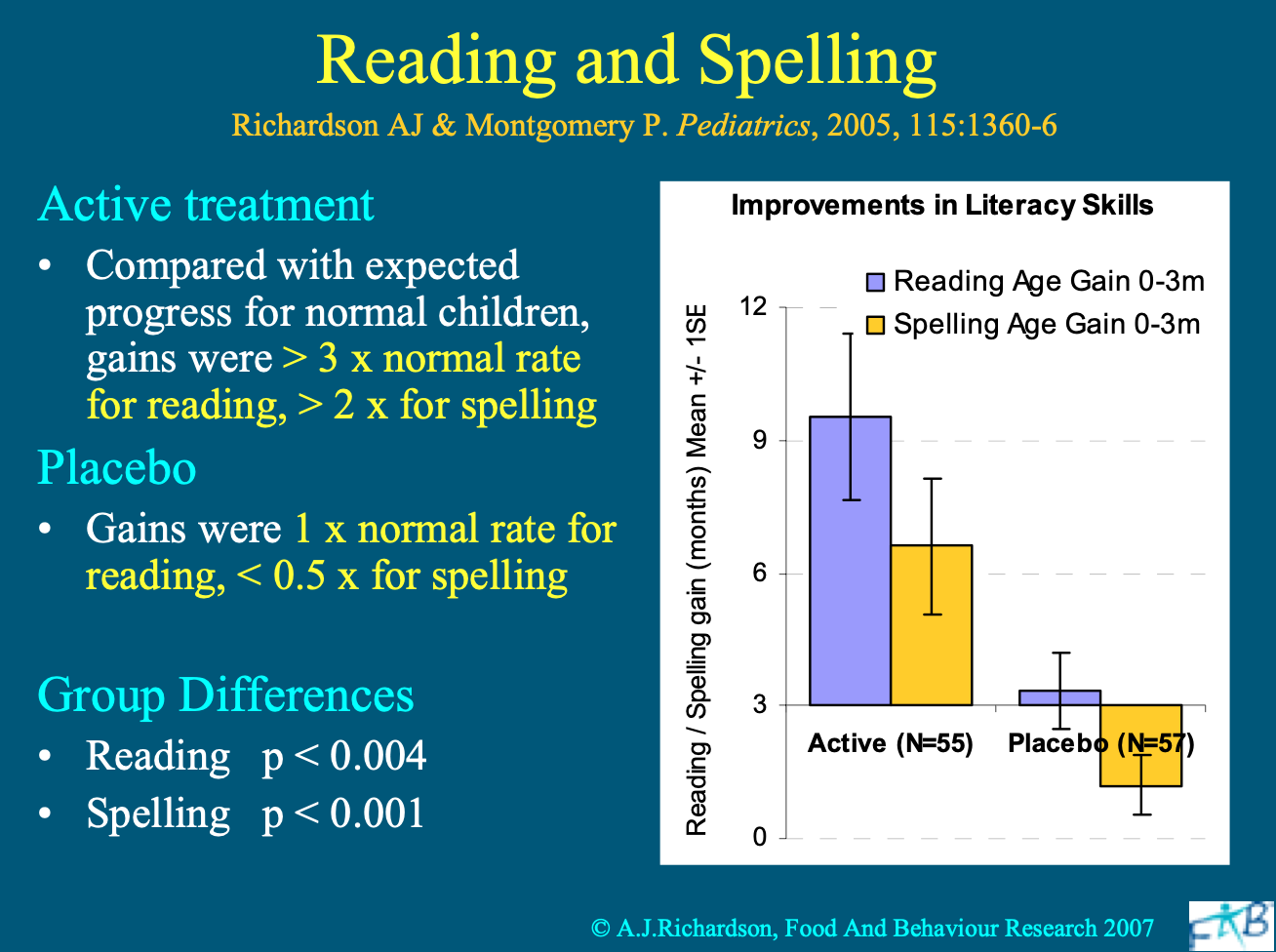
The research found that among the 22 students attending the school for Dyslexia, 17 of them (77%) improved their reading comprehension.
Talk about a mind-blowing connection! It suggests that gluten sensitivity may contribute to the cognitive and neurological symptoms associated with Dyslexia.Â
The finding highlights the importance of considering dietary factors beyond essential nutrients.Â
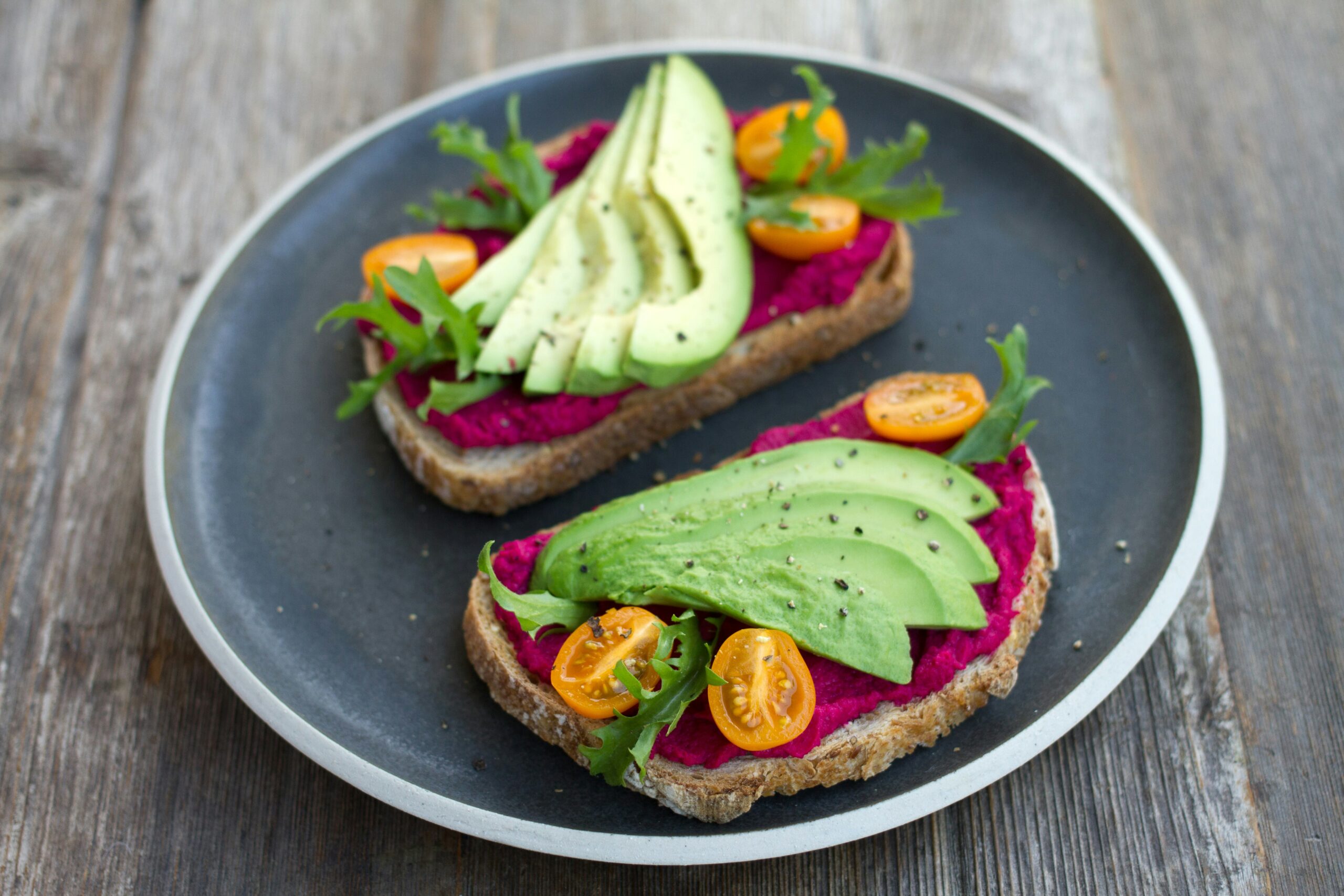
5 Nutrients and Dietary Factors Influencing Dyslexia
Time to take a step back and look at the bigger picture. Genetics and education are undoubtedly players in the Dyslexia game. However, we cannot ignore the role that overall health and well-being play.Â
Nutrition is just one piece of the puzzle. And a deliciously important one.
The relationship between nutrition and Dyslexia is a complex dish with layers upon layers of flavors to savor. Each ingredient brings its unique contribution to the table:
đ Omega-3 fatty acidsÂ
These essential fatty acids, particularly DHA and EPA, are crucial for brain function and development. The studies indicate that deficiencies in omega-3s may be linked to various cognitive and neurological effects.
Where can you find Omega-3 fatty acids?
- Fatty fish like salmon, mackerel, and sardinesÂ
- Walnuts and flaxseedsÂ
- Chia seeds
- Omega-3 fortified eggs
- Omega-3 plant-based kinds of milk

đ„© Iron
Iron is essential for the production of hemoglobin, which transports oxygen to the brain. Iron deficiency has been associated with the symptoms of dyslexia.
Where can you find iron?
- Red meatÂ
- Spinach and other leafy greensÂ
- Lentils and beansÂ
- Pumpkin seeds
- Tofu
- Dark chocolate

đŠ Zinc
Zinc is involved in various neurological processes, including synaptic function (nerve impulses) and neurotransmitter regulation. Did you know zinc can help all of us with learning and memory difficulties? This is highly relevant for individuals with Dyslexia.
What food to prioritize:
- OystersÂ
- BeefÂ
- Cashews and pumpkin seedsÂ
- Eggs
- Crab
- Yogurt

đ§ Vitamin B12
This vitamin is crucial for the proper functioning of the nervous system and the production of red blood cells. Deficiencies in this vitamin are associated with cognitive impairments.Â
What food to prioritize:
- Salmon and tuna
- Fortified breakfast cereal
- Fortified plant-based milk such as almond or soy
- Cheese
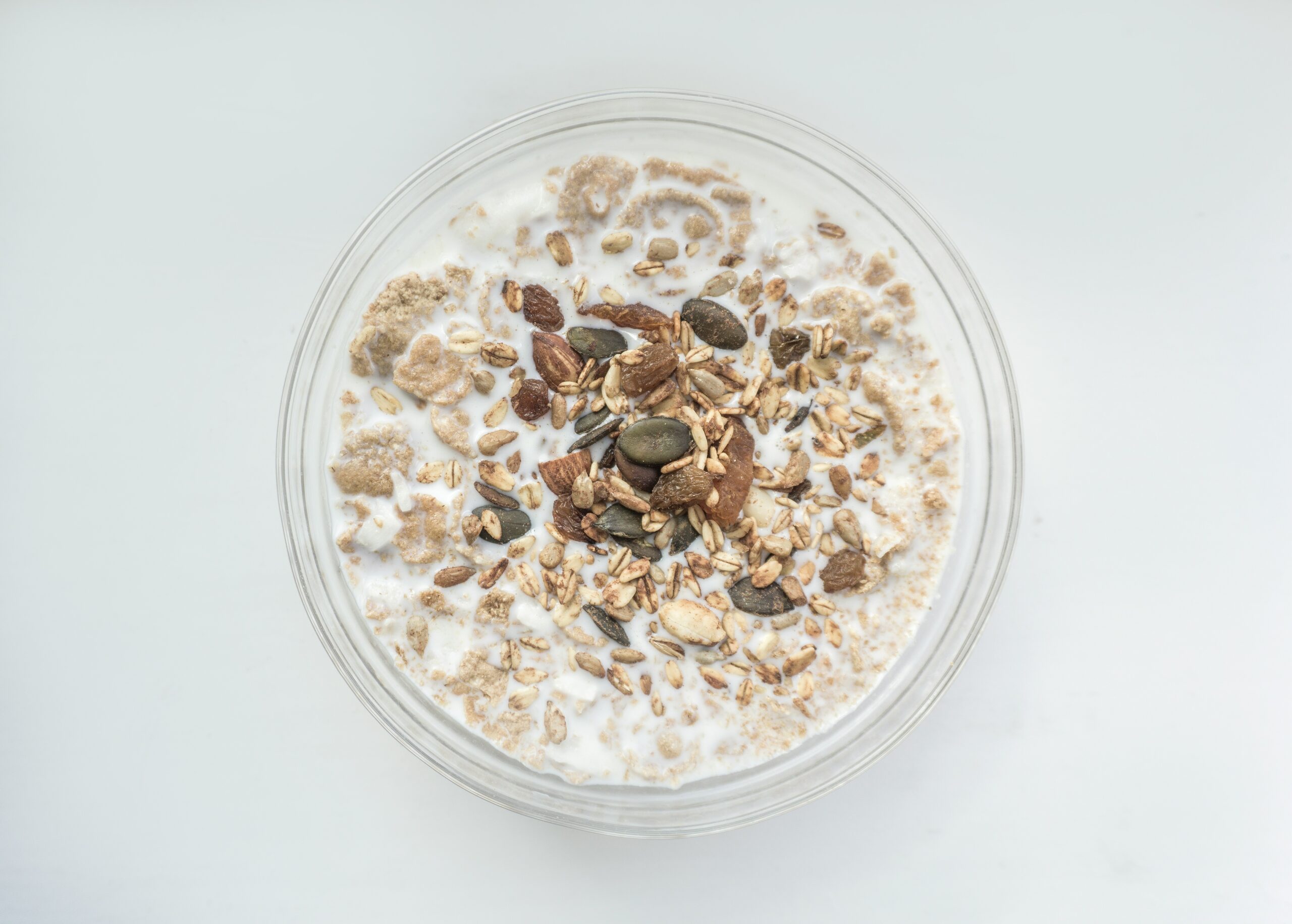
đ Gluten sensitivity
As the research study mentioned, gluten sensitivity or celiac disease may contribute to the cognitive and neurological symptoms associated with Dyslexia. The immune response to gluten may have an impact on brain function.
What food to prioritize:
- Gluten-free grains like quinoa, rice, and oatsÂ
- Fruits and vegetablesÂ
- Lean proteins like chicken, turkey, and fish
As you continue to explore this mouthwatering connection, remember to embrace a holistic approach that considers all the factors at play.
Because when it comes to Dyslexia, there is no one-size-fits-all solution.Â
It is a delicate balance of genetics, education, environment, and, the fuel we provide our brains. Now, let us explore together some next steps.
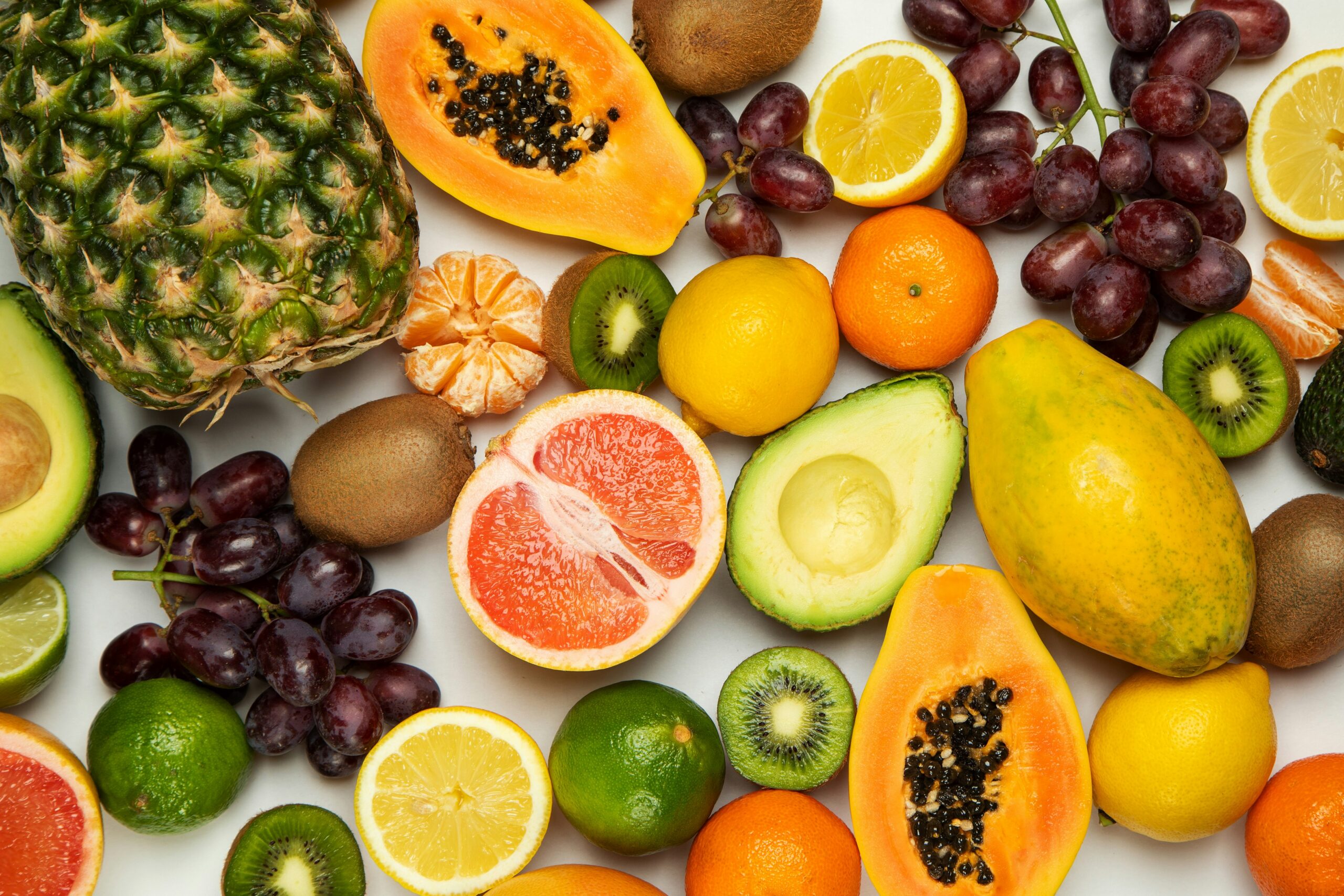
6 Suggestions for Dietary Modifications in Your Household
Here is where action and theory collide. Find six suggestions and get inspired to start changing your household’s diet.Â
Remember: Always consult a nutritionist and watch out for your kid’s preferences and reactions. Each individual is different.Â
As per the reviewed research, find some actions you can start taking:
Increase those omega-3 fatty acids
Load up on fatty fish, walnuts, and flaxseeds, or consider an omega-3 supplement to give your brain that extra boost. Consult your doctor.Â
Keep an eye out
For when your kid is getting more tired than usual. It may be time to increase spinach and lentils.Â
Explore the potential benefits of decreasing gluten
All kids love cookies (and so do we, adults). Next time you are at the supermarket explore healthier options made out of rice or other naturally grown cereals that do not interfere with celiac reactions.
Make a game!
Play with your children on how many different fruits and vegetables you can try in a single week or month. Add a board to the fridge. If you have multiple kids, make it a contest!
Replace. Do not eliminate.
Processed foods and sugary snacks are a childhood dream, and it is not necessary to restrict them from sweet flavors. Remember that children have a sweeter tooth than adults. Want chocolate? Try dark chocolate instead of a milky one. Want sour gummies? Pinneaple has a similar effect on the tongue.
Consider enlisting the help of a registered dietitian or nutritionist.
They are the true master chefs of personalized dietary plans.
Maintaining a balanced and nutrient-rich diet is not just about physical health. It is about giving the brain the fuel needed to be on fire.
Let us raise our glasses (filled with water of course) to the delicious world of nutrition.Â
We invite you to read more Tips and Hacks for Parents by Parents.
Points of Action
- Make a detailed shopping list for your next supermarket visit that highlights the nutrients shared here
- Book an appointment with a licensed nutritionist who specializes in neurodiverse children and individuals
- Consider taking a cooking class to learn how to prepare fun but nutritious dishes for your kid
Key Takeaways
- Recent studies have found connections between nutrient deficiencies (omega-3s, iron, zinc, vitamin B12) and Dyslexia symptoms.
- Nutrition plays a crucial role in supporting brain function, development, and cognitive abilities, essential for children with Dyslexia.
- A balanced, nutrient-dense diet featuring omega-3s, iron, zinc, vitamin B12, and potentially gluten-free options may help manage and mitigate Dyslexia symptoms.
- A holistic approach considering genetics, education, environment, and nutrition is necessary for addressing the challenges.
Sources and Further Reading:
Nunnykirk School in Northumberland
Brain food for working memory in dyslexia, dyspraxia, and attention deficit disorderÂ
How We Helped Our DYSLEXIC Son with Diet and Exercises
Disclaimer: This is not medical advice. Please consult with a licensed professional when in doubt. Lexicminds is not liable for actions taken from this page.Â


